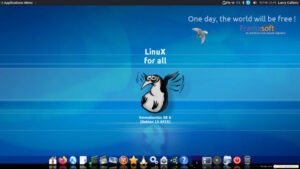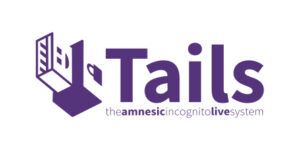Since I’ve been following Linux and FOSS (thirteen years or so by my estimation), questions regarding choice, or too much of it, have been bandied about in Linux circles. Some penguinistas point proudly to the long list of GNU/Linux distros, proclaiming choice to be wonderful and a positive aspect of life in the land of Linux. Others bemoan the sheer number of distros, saying having so many of them has made Linux confusing for newcomers and is otherwise inefficient.
I’ve always considered this to be a rather nonsensical discussion. To begin with, it is what it is. There are a gazillian distros out there, whether we like it or not, and complaining there are too many accomplishes absolutely nothing but to make the complainers out to be whiners–but that’s just my humble opinion.
The main reason I don’t usually pay any attention to these discussions on choice, however, is that I’m already firmly rooted in the camp that supports choice. Of course there are a gazillian distros. That’s the Linux gene pool. It’s a strength that helps keep Linux healthy and what keeps the operating system from being a one-size-fits-all solution that actually fits no one (like, say, Windows).
Most distros aren’t designed for the “average” user (if there is such a person), but for users with special wants or needs. Some are merely the product of tinkerers who like to get their hands dirty working under the hood. They’re all just part of the open source salad that is Linux.
It seems to me that in the past those who proclaimed there were too many distros were mainly Microsofties and Windows users who were attempting to turn choice from an asset into a liability–in other words, by people sowing FUD. Recently, however, I’ve been seeing more actual Linux users claiming that the number of distros has kept desktop Linux from evolving and gaining traction.

© Stan Shebs–licensed under GNU Free Documentation License v 1.2 or higher
This opinion has been expressed by Linux Advocates’ Dietrich Schmitz, who often opines that most distros are unnecessary. Last Thursday, when reporting on Cloverleaf’s announcement that the project was ceasing development as a stand-alone operating system, Mr. Schmitz again expressed his opinion on the large number of Linux distros:
“I happen to believe only a few Distributions [sic] will remain in five years and they will consist of Debian and derivatives, Ubuntu and derivatives, Mint, Fedora, openSUSE, Mageia, Arch Linux and Gentoo.
“All others are cookie cutter Distros [sic] of sorts and have no real redeeming value beyond being mixes of the aforementioned base Distributions [sic]. There’s no innovation in that.”
| [yop_poll id=”26″] |
While Mr. Schmitz is undoubtedly right in his assumption that many of today’s distros will be but a memory in five years time, that really doesn’t speak against their existence. Indeed, even if a distro is merely the result of a tinkerer seeing what he or she can do, making those efforts public may introduce some ideas or concepts that will later be rolled into other distributions. Also, that tinkerer may very well one day be employed as a coder for the likes of Red Hat or SUSE, or join the development team at Debian, bringing skills learned while hobbling together a small distro.
It’s also true that the sheer number of distros is probably very confusing to those coming to Linux from a monoculture operating system such as Windows or OS X. It would probably be a good thing if “official” Linux sites, such as Linux.com, kept a list of four or five general purpose distros on their front pages for potential new users who just want to give GNU/Linux a try.
As for me, I love a long list of distros. It doesn’t bother me that there’s a score of different remixes of each of the “major” distributions. Sometimes these derivatives become independent distros on their own–just as Mandrake/Mandriva began as a derivative of Red Hat, only to spawn PCLOS and Mageia, which started life as forks but are now standing on their own. Ubuntu was derived from Debian and Mint was derived from Ubuntu. None of these would be considered “cookie cutter distros.”
Christine Hall has been a journalist since 1971. In 2001, she began writing a weekly consumer computer column and started covering Linux and FOSS in 2002 after making the switch to GNU/Linux. Follow her on Twitter: @BrideOfLinux







Having used GNU/Linux for quite some time I can officially say that there are enough different versions of distros to satisfy the “tinkerer” crowd, while there are also the “New-To-Linux” distros that offer simplicity and ease to the uninitiated. I myself when first falling into the GNU/Linux playpen found myself completely overwhelmed and feeling despondent, (I almost made the foolish mistake of returning to Windows!) and it was all because I didn’t know “enough” about Linux and how it worked…had NO CLUE what a “package” was…or what a “.deb”….”.rpm”…or “.tar.gz” was….but after sitting down and helping myself to the smorgasbord of information that’s out there, I settled upon installing Fedora 14 to my old Dell Optiplex, and ever since then?..I’ve been dabbling, installing, experimenting, with all the many flavors and distros out there today…and I can say I’ve learned so much more from doing it that way as opposed to being led by hand down a path that I didn’t even want to tread! For those who complain about the variety of distros for Linux i would say…they should find ONE version that they can use, can work with and can manipulate and make their own, concentrate on JUST that one…and be quiet!..(AND happy as well!)
Are there too many types of cars available?
Are there too many different hi-fis available?
Are there too many different varieties of food?
Cream rises. The best will survive. The worst will sink.
I don’t think I could’ve said it any better than Alan Rochester. The best will survive and the worst will sink. Having too many doesn’t really hurt delelopment either, since Game devs have already chosen the distro they officially support for Games; Ubuntu.
What is bad however, is when a Dev leaves a project and forks it when what he should have done is to join an already existing project, non-distro related. For example, a guy leaves App A and forks it to App A2, but, App A already has a good and popular fork called App Ab that needs more devs.
Point being, I don’t like it when devs are spread too thin, it hurts advancement. Developers really need to start thinking about merging some of these projects. If you catch my drift.
Thank you for bringing a bit of sense to the discussion.
I keep wondering how this assumption of a homogenous work and talent pool to drain from came about.
If I stopped translating my favorites Focuswriter and Abiword, would I suddenly start translating Calligra? If someone stopped developing Xfce, would they instantly flow to Gnome, KDE, LXDE?
If a company pays a kernel developer and pulls that person from that task, will he then automatically be developing GNU or other infrastructural tools instead?
No: This is a targeted effort. There is no elasticity in this. If I stop working on the project I love or the project I am hired for, that energy does not automagically flow somewhere else.
Having said that, I actually think that Cloverleaf nailed the right approach – a lot of distributions could be an install script instead; Elementary OS could be a script to launch on Ubuntu to Elementarize the distribution; Cloverleaf with Opensuse; Korora with Fedora; PointLinux with Debian; Manjaro with Arch; Salix with Slackware; and they would not need to do a huge load of infrastructure work.
I think there should be some “long term distros”, or “recommended by the Linux Foundation or the FSF (done to be used by many, for good)… and another family of “home made experiments”, because the possibilities are _SO_ diverse, we can end up with 1000000 distros… that are, really 5 families combined with a dozen of DEs + WM !
That is not “bad”, _per se_ , of course, but will confuse for ever the common people and OEM vendors.
Another approach: natural selection (let the “market” choose two or three winners to spread and sell, and the others will live in communities peoples’ computers). Is this one the present situation??
I personally stick with the BIG ones. Open Suse – Fedora – Linux Mint. I never INSTALL any of the up and coming versions untill they’ve gotten ATTENTION for a year or so. The “little” new versons – I’ll stick on virtual drive or a LIVE DVD. Whats wrong with 4 or 5 possibilities – Thats Not too many.
With whatever respect may be due to Dietrich Schmitz, he is dead wrong in omitting Slackware from his list of “the few distributions that will remain in five years.” Though it may not garner the publicity of the *buntus, Slackware has been around for 22 years and shows no signs of going away any time soon.
I’m glad you mentioned that, John B. When I was writing this article I noticed the omission of Slackware and thought it very strange since, as you point out, Slackware is in many ways the granddaddy of all distros. In the end, I decided that Mr. Schmitz was writing off the top his head and omitted Slackware by accident and gave him the benefit of the doubt. We are all forgetful sometimes.
Dietrich is just a drama queen, it’s better to just ignore him like the rest of the universe does. 😉
I have been running Linux exclusively since Redhat 5.1, but I’ve mainly stuck with the big distros. Redhat for a few years, then Mandrake, then Kubuntu. Switched from KDE to XFCE for a couple of years, then most recently switched to Mint.
I can tell you, every time I have switched distros, I was amazed at the sheer number of new ones out there. I don’t really follow the distro scene (if such a thing exists) but I clearly remember some of the big changes in my Linux life. Knoppix running off of a livecd, being able to upgrade Ubuntu in place instead of struggling for a week then just re-installing. Those things wouldn’t have been possible if there wasn’t the ABILITY to have change. I can certainly agree that there are still major distros and there always will be. But having a diverse ecosystem is a great thing. It can be confusing, but all it takes is a little research. We don’t need an iPodization of Linux. Ask Windows 8 users how they feel about choice. 😉
I agree with Christine’s analysis of who’s doing the complaining. It came as FUD from the MS apologists, and lately some Linux users have made the same mistake.-) Okay, everyone’s entitled to their opinion, but that’s all it is: opinion. I have never seen any hard figures showing that too much choice dilutes the available talent.
Choice is good for users and freedom is good for developers.
rjb
@John B
However good Slackware may be, it’s written by one Man.
That rules it out for me, regardless of how long it has been around. — Dietrich
Your list wasn’t of distros you’d ruled out, Dietrich. It was of distros that won’t be around five years from now. 🙂
@Christine,
My list is of Distros having a ‘rank and file’ community of Developers who presumably will be around to provide ongoing support for years to come, and is why Slackware was excluded despite its longevity and viability.
The Fuduntu story underscores my expressed concerns where the key ‘brain trust’ chooses to resign for his/her own personal reasons.
And, that’s a risk when choosing any Distro run by a solo developer.
Your Best Friend Forever,
— Dietrich
Slackware may be officially maintained by one man, but there’s a whole team behind the scenes who does significant parts of the work. Just take a peek at the SlackBuild scripts in the Slackware source tree, you’ll see various names pop up: Eric Hameleers (responsible for the whole KDE tree and ARM port), Robby Workman (X and XFCE), Piter Punk (slackpkg and other utilities), the list is quite long. Or go hang around a bit on #slackbuilds on IRC. Or take a peek at the slackbuilds-users mailing list.
So whle Patrick Volkerding’s favourite hobby may be running blindfolded in front of buses, I do stick to Slackware on both servers and desktops, and I even rely my entire business (check out the link) on this fine distro. Because Slackware is one of the rare distros caring about perennity.
As for Dietrich Schmitz, this troll has infested the FOSS blog sphere for a few months and is probably attempting a comeback. As far as I’m concerned, he’s just a clueless pain in the ass.
Kiki is one of a legion of tribal, righteous, arrogant, rude individuals who when someone else has a differing opinion reflexively labels them ‘a troll’.
I spoke nothing of the quality of Slackware.
But the fact remains: it is maintained by one person.
No, I guess I will always be a newbie, because I started with Ubunto 6 years back and have been off & on from U.E. to Bodhi, currently in Mint, cinnamon, XFCE, & am thinking of going Debian’s lite version next.I never gor into Mac or Apple & left MSN way back!
Linux distros…the more the merrier!
I disagree.
The project is *managed* by one person, but there are others who are a part of a core team. Slackware is a fairly narrow distribution with a smaller set of packages and updates, where the community stands for the additional packages. It is not exactly Debian.
@Morten: don’t be suprised if Mr. Schmitz is totally immune to your arguments. Any argument, that is. The guy has a hell of a history on LXer.com.
I think the drawbacks of having too few distros far outweighs the problem of too many distros. We’re already seeing Canonical abusing Ubuntu’s popularity to leverage pretty anti-FOSS behavior like surveillance code and targeted advertising. Ubuntu is become the Windows of the Linux world precisely because the name has so much power especially to those unfamiliar with Linux (I’ve spoken with non-Linux users who thought Ubuntu was the only distro available…)
Alan made the best point, the cream rises to the top and although there may be thousands of distros, really there are only a handful that get regularly used. And if someone wants to put in the time to create their own distro, even if it will only be used by that person, well isn’t that the essence of the FOSS ideal anyway?
This wouldn’t even be a topic of discussion if, like car brands or food, we were given choices on operating systems from day one. The disconnect comes from people who grew up with only ONE operating system and then get overwhelmed by the number of choices Linux has. I really don’t think it’s that hard to do a bit of research and find the distro right for an individual if a person can’t be ‘bothered’ to even research the operating system they are running then maybe Linux isn’t right for him/her.
Don’t use a distro made by one person???
PCLinuxOS – Bill Reynolds
Crunchbang Linux – Philip Newborough (Larry Cafiero likes it)
SolusOS – Ikey Doherty (Ken Starks likes it. Hang on, doesn’t he contribute to Linux Advocates…)
Then there are some that started out narrow and got broader e.g. Puppy Linux started by Barry Kauler.
“a few Distributions will remain in five years and they will consist of Debian and derivatives, Ubuntu and derivatives, Mint, Fedora, openSUSE, Mageia, Arch Linux and Gentoo.”
But Ubuntu is derived from Debian…Linux Mint is derived from Ubuntu…
I give thanks to all who develop these wonders, I tried several in virtual machines and then installed alone or with Windows, I currently use Ubuntu with gnome and to me is OK, to whom I have installed it , are fascinated, first by no longer worry about viruses (common problem) and second because their machines are not slow, they had xp :).
I am technician and I promote the use of linux and all free software at work and with friends. Greetings to all from Tabasco, Mexico. I apologize for my English
@hilux Your English is just fine. If you hadn’t said anything I wouldn’t known that you’re not a native English speaker. My Spanish, on the other hand, is atrocious.
I agree with the author.
Dieter sure can stir the drama. Many quality distributions are led by one person as described in an earlier comment.
He mentions Fuduntu, but Fuduntu had a team of people working on it not just me. Implying that it failed because I chose to leave only shows that he doesn’t have any idea what he’s talking about.
It was a project that wasn’t ever intended to become what it had become and wasn’t self sustaining because some people like Dieter leached off of it and gave nothing back. Others did give back, but not enough people did for it to be sustainable.
Dieter is a contributor to the very problem he claims is a problem and continues to make matters worse by parroting support for the “big pond” distributions because he is too ignorant to know better.
His cloverleaf article is more evidence of lack of comprehension. That team didn’t “take their ball and go home”, they just moved upstream and didn’t go independent distro.
All of their work is still available for openSUSE via OBS and they don’t have the added burden of rolling and supporting an independent distribution – it’s a win for openSUSE and a win for the community.
In my case since he mentioned my project specifically, I only chose to leave my project after the whole team voted to shut it down because the opportunity presented itself, my departure wasn’t the reason that it ended.
Had the team voted to continue the project, I would still be there today working on it and paying the bills out of my own pocket when we didn’t have enough in the funds bucket as I did for over 2 years.
As I mentioned before, Dieter is just in it for the drama and deserves no more than to be ignored.
@hilux what is your opinion/comments of this spanish puppy linux created by nilson morales in Argentina? http://puppyes.com.ar/
I would like to hear more about how linux is used in the spanish speaking regions of the world.
Do they reject any linux, “Because its NOT WINDOWS!”
I like the “Frugal” install along side a windows installation of Puppy Linux or the USB Flash drive install, so that you keep your Linux OS, programs,and documents with you on a single USB Flash Drive. This allows an individual to use a friends Window PC computer with out making any changes to friends computer or leaving any data behind! Great way to demo/show/display Linux to a Windows user.
Personally, I did a full HDD install of Lucid Puppy 5.2.8 Linux for my development use.
Slackware was mentioned above.
A version of puppy linux “Slacko” is compatible with slackware 13.37 or 14.00 repositories
http://01micko.com/slacko.html
Yes many choices, create anxiety from lack of knowledge about the choices operation. Some study and reseach, via “Google” or http://www.distrowatch.com can minimize your anxiety in making a “choice”. Live CD’s, bootable USB Flash Drives, or a Virtual Box give a user opportunity to research that linux distro with out commitment and allowing you to backout from that choice and make another distro choice if you choose so. IE a chance to dip your foot in the water before making a leap/dive head long.
I recommend puppy linux because of it’s small size of <180 Megabytes.Also its fast: load sand runs in 256MB of DRAM memory.
Windows Users: http://linuxliveusb.com or
http://unetbootin.sourceforge.net/ allows you to create a bootable USB Flash drive with the Linux Distro of your choice.
Other USB Flash Drive installers:
YUMI or Universal Boot Installer
http://www.pendrivelinux.com/yumi-multiboot-usb-creator/
http://www.pendrivelinux.com/universal-usb-installer-easy-as-1-2-3/
http://www.pendrivelinux.com/put-lucid-puppy-on-usb-flash-drive-from-windows/
http://www.pendrivelinux.com
May Linux users share this with their Windows using friends.
Many Tools are available to use. I wish you well in your continuing Linux education, readers. Christine, thanks for the written word and the opportunity to share comments with others around the world.
Eddie G. & Alan Rochester, Right on the mark with your comments. Thanks
1.) Educate yourself and work/play with a ONE Linux distro. For those who complain about the variety of distros for Linux I would say…they should find ONE version that they can use, can work with and can manipulate and make their own, concentrate on JUST that one…and be quiet!..(AND happy as well!)
2.) ?? Too many choices of autos, food, HiFi? NO! Choice is Freedom. Cream rises. The best will survive. The worst will sink.
MikeyD. Say it again louder!
The disconnect comes from people who grew up with only ONE operating system and then get overwhelmed by the number of choices Linux has. I really don’t think it’s that hard to do a bit of research and find the distro right for an individual. If a person can’t be ‘bothered’ to even research the operating system they are running then maybe Linux isn’t right for him/her.
Research Linux:
http://www.distrowatch.com
http://linux.com
http://www.lxer.com
http://www.linuxtoday.com
Testing Linux from Windows with a USB Flash Drive:
http://linuxliveusb.com
http://www.pendrivelinux.com/universal-usb-installer-easy-as-1-2-3/
http://www.pendrivelinux.com/yumi-multiboot-usb-creator/
Burning an ISO file to a CD/DVD on Windows.
http://alexfeinman.com/isorecorder.htm
Windows user, above are the tools you may use for self education about linux to solve your computing needs.
@Andrew
You’re doing a great job of ignoring me. LOL.
It’s not Linux, it’s Gnu/Linux.
Linux is the name of the kernel. On top of which is the Gnu tool chain. What’s the point of deliberate mistakes?
Do you call your car “engine”? Of course not, neither do you call it “Ford Engine” or “Audi Engine”.
And further – but the sake of hardware functionality, where some compromise may be needed in the short term, if it’s not 100% open source, it’s corrupted Gnu/Linux and as such is a poke in the eye for all the people who made their code open source.
Open Source wasn’t started so people could have a free version of Windows. It was started to give people back freedom and control – why then corrupt it with things that take that freedom away?
“Do you call your car “engine”? Of course not, neither do you call it “Ford Engine” or “Audi Engine”.”
Hmm, I’ve always called a car a car but then again I’m not trolling fossforce with GNU/ crap. 🙂
“It’s not Linux, it’s Gnu/Linux.” no, it isn’t. Furthermore it’s GNU not Gnu. It isn’t accurate to even call Linux GNU/Linux as a distribution is technically far greater than the Linux and GNU components contained within it. The moniker adopted by the community for this bundle of software making up a distribution is not GNU/Linux, it’s simply Linux.
Sorry. 🙂
@david I don’t see what your problem is here. Twice in this article, I specifically use the term GNU/Linux to make clear the fact we’re not talking about Android or some other non-GNU Linux OS. Perhaps you didn’t read the article, in which case you’re half baked. Perhaps you did read the article and decided that 2 mentions for GNU weren’t enough, in which case you might have a chip on your shoulder. 🙂
My remarks were aimed at the commentators more than the article itself. People like the delightful “Andrew”.
Can’t begin to tell you how tired I am of being insulted by people who think that disagreeing with someone gives them the right to be nasty and that having been nasty that it’s all made better by the inclusion of a smiling emoticon (it’s not alright, by the way, it’s even more childish than the initial insult).
In fact, you’re welcome to each other. Online life is disgusting these days. Chock full of self appointed **sholes, bullies and idiots.
Adios.
“Can’t begin to tell you how tired I am of being insulted by people who think that disagreeing with someone gives them the right to be nasty and that having been nasty that it’s all made better by the inclusion of a smiling emoticon (it’s not alright, by the way, it’s even more childish than the initial insult).”
No-one has insulted you, so stop being a victim.
“People like the delightful “Andrew”.”
You don’t need to “enlighten” us, “people like me” understand the situation far better than you do.
By calling “Linux” GNU/Linux you do a disservice to all of the other components of a Linux system including BSD, MIT, APACHE, and other licensed bits.
“Linux” was adopted as a moniker by those of us who realize that what we call Linux is bigger than GNU + Linux. I’m sorry if we aren’t as short sighted as you’d like us to be.
“In fact, you’re welcome to each other. Online life is disgusting these days. Chock full of self appointed **sholes, bullies and idiots.”
Again no-one has bullied you, but believe what you will. Troll another comment thread, maybe someone there will feel sorry for you. I certainly won’t.